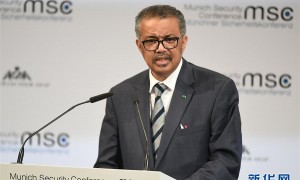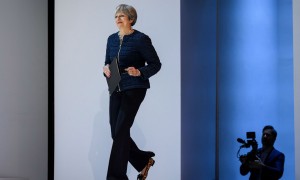An exhausting international negotiation session on climate change concluded Sunday with an agreement among countries to take on more ambitious goals. That agreement, however, failed to resolve the main issues on the table, like creating rules for trading carbon emissions credits and helping developing countries pay for climate damages.
本次关于气候变化的国际谈判会议令人筋疲力尽,周日终于接近尾声。各国达成了一项协议,要设定更加宏伟的目标。但提交的主要议题在这项协议中并未得到解决,如制定碳排放信用交易规则,以及帮助发展中国家补偿其对气候造成的破坏。
Almost 200 countries at the two-week United Nations meeting known as COP25 did approve a statement calling on them to do more to fight climate change by next year, when the next round of national commitments to curb greenhouse gas emissions under the Paris climate agreement are due.
这次为期两周的联合国会议被称为《联合国气候变化框架公约》缔约方大会,与会的约200个国家都通过了一份声明,声明呼吁他们在明年之前采取更多措施来应对气候变化,届时《巴黎气候协定》中各国下一轮温室气体减排承诺将到期。
But delegates could hardly agree on much else at the longest meeting in the 25-year history of these annual climate talks, which overshot its scheduled end by more than 40 hours.
但在此次会议上代表们无法就其他内容达成一致。本次会议在年度气候谈判25年历史上持续时间最长,超出预定时间40多小时。
The negotiations this year were meant to nail down the outstanding issues in implementing the Paris climate agreement, but they came at an especially difficult time for many of the countries at the table. Countries like Chile and France are facing civil unrest back home. The United Kingdom held a general election during the talks. And India faces a slowing economy.
今年的谈判旨在解决《巴黎气候协定》执行过程中尚未解决的问题,但很多与会国家正处于极度困难时期,智利和法国国内骚乱,谈判期间英国正值大选,印度经济放缓。
One of the toughest negotiations was over a section of the Paris climate agreement known as Article 6 that governs international carbon markets.
谈判中最困难的部分就是《巴黎气候协定》第6条,该条款对国际碳市场有影响。
Done right, it could serve as a vehicle for countries to adopt more ambitious goals for cutting their greenhouse gas emissions by allowing them to pay for reductions in emissions where they are most effective, which may not be inside their own borders. But done poorly, such a system could delay — or even reverse — progress in fighting climate change. Badly designed credits could fail to deliver the promised emissions cuts, or accounting loopholes could lead to double counting of credits.
如果得以合理执行,就可以成为一种手段,帮助各国实现更为宏伟的减排目标,允许各国在最有效的减排领域为减排买单,范围可能并不局限于国内。但如果执行不利,这一体系会延缓应对气候变化的进程,甚至还会起到反作用。糟糕的信用不能兑现减排承诺,会计漏洞也可导致信用的重复计算。
Countries came to the table with different priorities for how to structure these markets, and the rules they should use, but almost all of them left disappointed that the issue was once again left unsettled. “Regretfully we couldn’t get to an agreement on this important article,” said Carolina Schmidt, president of the COP.
在构建这些市场以及应遵守的规则方面,参与谈判的国家重要性不同。但此次这一问题又没有得到解决,几乎所有国家都很失望。本次会议的主席Carolina Schmidt说:“很遗憾,我们未能就这一重要条款达成协议。”







